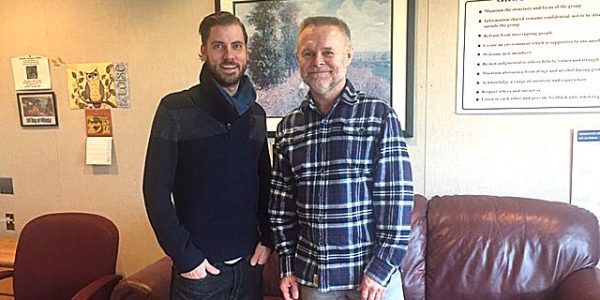Powell River clinicians introduce SMART approach to treating addictions
Since Ron Cameron initiated the first SMART meeting in Powell River in September, three types of participants keep coming back:
- current mental health and substance use clients who want the additional support of a group
- people who want an alternative to a 12 step meeting
- people who attend 12 step meetings but want to learn additional skills to support their recovery
Ron is a social worker working as a concurrent disorders clinician in Powell River. SMART, which stands for Self Management and Recovery Training, is an evidence-based approach to treating addictions that does not consider addictive behaviour to be a disease. Its approach to treatment includes evidence-based therapeutic tools such as cognitive behaviour therapy (CBT), rational emotive behaviour therapy (REBT) and motivational interviewing.
“It has been my preferred way to work with individuals,” explains Ron who, after 12 years working in child and youth mental health in Richmond, moved to Powell River three years ago.
“Twelve step programs work for many but I think every community should have an alternative for people who want something different and support groups are an important part of treatment for those dealing with addictive behaviours.”
SMART gets positive participant response
An international non-profit volunteer organization, SMART began in the early 1990s to provide assistance to people seeking abstinence from all addictive behaviours. Face to face and online meetings (and groups) are held across the globe, but SMART is new to Powell River.
“The community is not much different than other cities in B.C. when it comes to its addictions problem, we just have fewer resources,” says Ron. (The Powell River Regional District population is just under 20,000).
“The response from participants has been very positive and we have some regular attendees who also go to Alcoholics Anonymous or Narcotics Anonymous meetings. The atmosphere has been very supportive and inclusive. One thing that several participants have said is that they appreciate the present and future focus of these meetings.”
SMART expands on mental health services
Ron and mental health clinician Christopher Dodge took the SMART training in March so they could reach more people and expand on the mental health services VCH offers in Powell River.
“My manager was supportive and by choosing an offsite location, The Community Resource Centre, it also meant that VCH MHA was able to strengthen the linkage with this service provider,” says Ron.
“Running a SMART meeting is also an effective way to offer addiction services to more people, some of whom may not want to be connected to a formal service for individual counselling.
An individual doesn’t need to be a clinician to facilitate SMART meetings (anyone can take the training), but SMART recommends that, where possible, a mental health and addictions professional be available to the facilitator as a consultant.
“My hope is that we will eventually have several weekly meetings run by participants and that my role will evolve into that of consultant to the groups,” says Ron. “I am also looking to start a monthly meeting for the family and friends which focuses on how best to support someone with addictive behavior.
Click here to find a SMART meeting in your area. Go to www.smartrecovery.org for more information.

